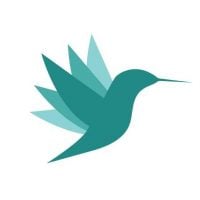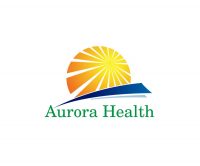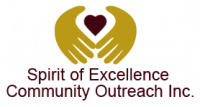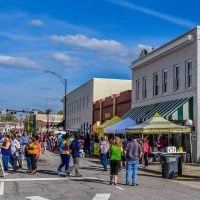
Lifetouch
Drug Rehab Center in Kinston, North Carolina
- Substance Abuse
- Opioid Addiction
- Dual Diagnosis
- Drug Addiction
- Alcoholism
Lifetouch is a leading addiction treatment provider with over 25 years of experience in Kinston, NC, offering evidence-based care and a full range of services, including aftercare support, drug rehab, dual diagnosis, intensive outpatient, and outpatient.
About This Kinston, NC Facility
Lifetouch, located in Kinston, North Carolina, is an outpatient facility dedicated to helping adults overcome substance abuse and dual diagnosis challenges.
For over 80 years, Lifetouch has been a trusted provider, offering professional and compassionate care to individuals seeking recovery.
Accredited by CARF, Lifetouch adheres to rigorous standards, ensuring quality and excellence in addiction treatment. The facility offers a range of evidence-based therapies, including intensive outpatient programs, dual-diagnosis treatment, and aftercare support.
- Personalized treatment plans tailored to individual needs
- Comprehensive approach addressing co-occurring disorders
- Experienced and dedicated staff committed to client success
- Supportive environment fostering long-term recovery
Lifetouch specializes in treating alcoholism, opioid addiction, substance abuse disorders, and dual diagnosis conditions.
For individuals struggling with alcohol or drug addiction, Lifetouch provides a supportive environment and evidence-based therapies to address the root causes of addiction and promote lasting recovery.
Genders
Ages
Modality
Additional
Accreditations

CARF
The Commission on Accreditation of Rehabilitation Facilities (CARF) is a non-profit organization that specifically accredits rehab organizations. Founded in 1966, CARF's, mission is to help service providers like rehab facilities maintain high standards of care.
Conditions and Issues Treated
Rehab centers exist in Kinston, NC to help individuals bounce back from substance abuse, which is an umbrella term for drug and alcohol addiction. Drug addiction refers to the use of illegal drugs and improper use of prescription drugs. Centers like Lifetouch provide individuals a chance to access individual and group therapy that can be monumental for recovery.
Substance abuse includes all problems that stem out from using various psychoactive substances. It is also a diagnostic term used by Diagnostic and Statistical Manual of Mental Disorders (DSM-IV) to define the mental and physical impairment or distress caused by misuse and overuse of certain substances in a period of 12 months.
Opioid addiction involves addiction to legal or illegal opioids. It may happen very quickly with any opioid use. Sometimes within a matter of days. Opioid addiction is a known as a high-risk factor for future heroin addiction.
Opioid withdrawal can be extremely uncomfortable and lead the user to continue to use even if they want to quit. Stopping using an opioid requires careful medical observation. Sometimes the withdrawal can persist for many weeks, which can put the user at a high risk for relapse.
It is recommended to receive inpatient treatment and a medically supervised detox like those offered at Lifetouch in Kinston, NC, NC, to manage the withdrawal process while learning lasting tools to maintain recovery. In some circumstances medications can be used to manage opioid addiction.
People with dual diagnosis have coexisting addiction and a mental disorder. 9.2 million US adults had a co-occurring disorder in 2018, so not just limited to North Carolina residents. Best treatment combines medication, psychotherapy (talk therapy), support group, and inpatient rehabilitation. Sometimes, complementary therapies – yoga, massage, and acupuncture – may also be used.
Levels of Care Offered
This center offers a variety of custom treatment tailored to individual recovery. Currently available are Aftercare Support, Drug Rehab, Dual-Diagnosis, Intensive Outpatient, Outpatient, with additional therapies available as listed below.
Intensive outpatient programs mostly conduct meetings on weekdays. Group therapy is the main element in most intensive outpatient programs. Most IOPs last for about 90 days and include drug use monitoring and testing. A North Carolina IOP, like what’s offerd at Lifetouch, take much more time than a standard outpatient program. Some programs offer other services as well, such as employment assistance and medication management.
Outpatient treatment can be considered the lowest intensity level of addiction treatment in Kinston, NC. It is ideal for early phase addiction or lower intensity addictions. Lifetouch peer group support, 12-step programs, and individual counseling may still be involved.
After treatment, addiction treatment can be frightening for newly sober people. Aftercare support provided by Lifetouch is designed to give resources and help on a continued basis. It can involve finding housing in and around North Carolina, setting up 12-step meeting groups, continued medical monitoring, and counseling.
Lifetouch‘s Therapies & Programs
Individual therapy aims to identify the core issues that would have led the patient to substance abuse and address the root cause effectively. Patients find the therapist as a person who they can trust. It helps them to open up and discuss personal and sensitive issues, which they may not be comfortable discussing in a group.
Couples therapy is an approach wherein the patients and their partners are engaged together as a part of the treatment process. When a person becomes a victim of substance abuse, it affects the patient and the people around him, particularly his partner. Their relationship can become strained due to lack of communication, financial issues, loss of trust, lack of intimacy, and physical abuse in more severe cases.
Couples therapy addresses these issues and tries to rebuild the trust between the partners. The partner’s involvement in the process will result in greater chances of treatment success and sustained recovery.
Family therapy is a set of therapeutic approaches that assumes that the entire family is a system. It utilizes the strengths and resources of the family to help the patient refrain from resorting to substance abuse. It helps to repair relationships and improve communication between family members.
Group therapy happens at Lifetouch in a controlled group environment, as opposed to a one-on-one setting. It supports Kinston, NC patients’ recovery by offering a sense of comfort and letting them know that they are not alone. Through shared conversations, patients also learn to develop faith and understanding and gain insight on their addictions.
Unresolved trauma is often a key reason why many patients resorted to substance abuse. Trauma therapy refers to treatment wherein specialist therapists help the patients to resolve the trauma that led the patients to substance abuse. The trauma could be physical abuse, sexual abuse, war, natural disasters, divorce, accident, loss of a loved one, etc. Thinking of these traumatic events causes emotional disturbances like anxiety, depression and results in addiction. If trauma is the primary cause of substance abuse, then both issues must be addressed. Otherwise, there is a risk of relapse. Trauma therapy also improves the cognitive functions and provides long term benefits.
Cognitive behavioral therapy (CBT) is a way of addressing concerns through talking. It can be used in individual counseling sessions. Talking through issues with professionals at Lifetouch can identify sources of discomfort or unhealthy thoughts. It is a way of learning about yourself and your individual perceptions. CBT is a healthy way of addressing some behaviors which may be bringing unintended consequences in your life.
Contingency management is a way to help motivate someone to remain substance free. It is a process of rewarding positive choices and good outcomes. As humans we are wired to recreate experiences that lead to positive feelings. Through this method incentives are used for completing positive steps towards a sober life. This may be a reward for attending meetings, remaining sober or for employment goals.
Payment Options Accepted
For specific insurance or payment methods please contact us.
Additional Details
Specifics, location, and helpful extra information.
Kinston, North Carolina 28501 Phone Number(252) 527-3300 Meta DetailsUpdated April 15, 2024
Staff Verified
What else do people call Lifetouch?
People have occasionally also searched for “Life Touch in North Carolina”
Patient Reviews
There are no reviews yet. Be the first one to write one.
Kinston, North Carolina Addiction Information
North Carolina ranks 29th in the nation for overall substance abuse. Many of the drugs abused in the state are illicit, and many of these are opioids. Prescription opioids are readily available due to the high rates of medical workers prescribing them. The number of prescriptions has increased tenfold since the 1980's. Opioid overdoses are the most common type of death in North Carolina.
The Kinston, North Carolina community has been greatly impacted by drug addiction and abuse. In 2015, the state ranked 16th in the nation for drug overdose deaths. Almost 60,000 adolescents between 12 and 17 years old reported using an illicit drug other than marijuana in Kinston. If you or someone you know is struggling with drug addiction or abuse, it is important to get help.
Treatment in Nearby Cities
- Hendersonville, NC (275.2 mi.)
- Horse Shoe, NC (280.6 mi.)
- West Jefferson, NC (232.7 mi.)
- Shannon, ( mi.)
- Rockwell, NC (160.2 mi.)
Centers near Lifetouch



The facility name, logo and brand are the property and registered trademarks of Lifetouch, and are being used for identification and informational purposes only. Use of these names, logos and brands shall not imply endorsement. RehabNow.org is not affiliated with or sponsored by Lifetouch.




